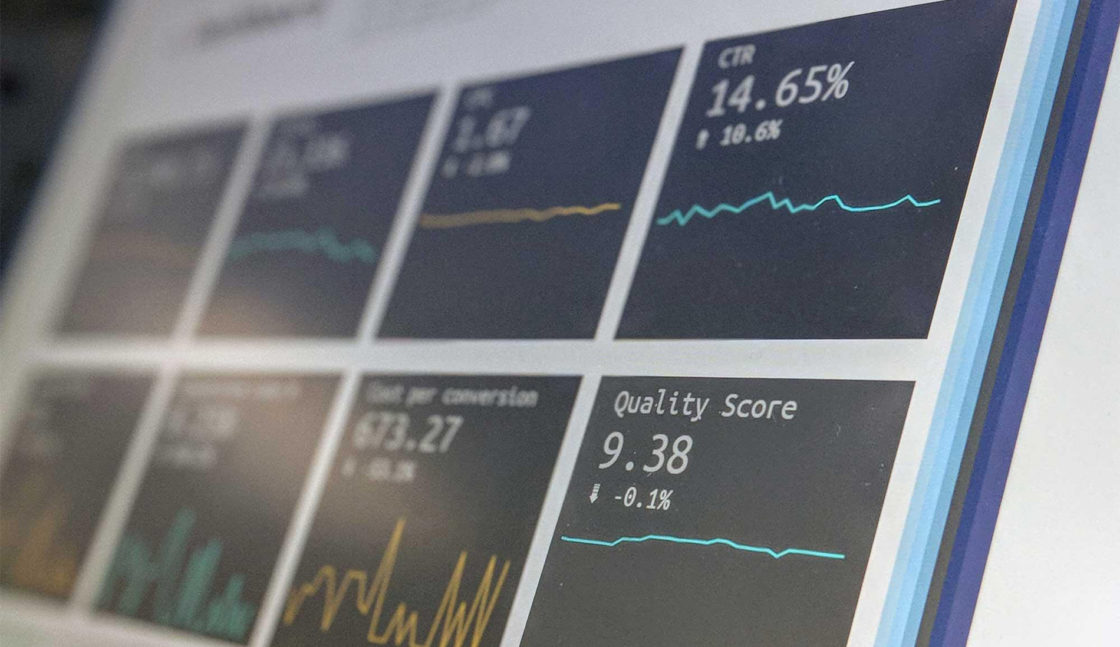Use data analysis to understand your customers

Data is vital to implement personalisation. However, according to a report published by WBR and OneMarket, 64% of retailers said they could not identify the majority of their website’s visitors. In comparison, 57% said they did not use CRM platforms.
As the e-commerce landscape grows and becomes more competitive, uniqueness and personalisation are more than hyper words. Each one of your website visitors and customers is expecting a relevant experience. As a result, when online personalisation is inaccurate or non-existent, consumers get frustrated and leave your website.
The same happens with the follow-up relationship after the first purchase. Flooding your customers’ inboxes with promotional emails and irrelevant messaging is an invitation to lose them permanently. This is why we can emphasise enough the importance of data, segmentation and behavioural targeting.
The role of Artificial Intelligence
According to the same report, about 50% of retailers prioritise the adoption of deep learning to improve their marketing methods. The use of artificial intelligence and machine learning offers a richer understanding of the needs and patterns of visitors to your website and your potential customers.
There are general notions for the implementation of personalisation. For example, to understand the interaction from person to person or modify the “sale” argument by responding to the client’s interests. The data is what shows the way forward. These notions require technology, analysis and decision making to be implemented correctly.
In our case, Recommend optimises your website from the get-go. Thanks to the use of AI, our solution gathers information from your website visitors and your current database to predict patterns and help with decision making – from product recommendations to content personalisation.
Your customers are continually evolving
There are still companies relying on static databases for their communications and promotional strategies. The inaccuracy of this information can affect business performance. Customers’ behaviours are continually evolving. The management of customer databases shouldn’t be treated as a silo. Instead, it should be considered an active resource in constant update.
The same happens when using only purchase history to implement personalisation or update your marketing strategy. Focusing only on what items a user bought in a particular time frame has a biased and incomplete view of that customer. In other words, purchases made during sales or seasonally not necessarily reflect that user’s interests or purchase behaviour.
The importance of Customer Segmentation
Different types of data build your customers more general profiles: demographic information, account details, purchase history, among others. Having more in-depth information allows you to have a clearer picture of who are your visitors and what they like, for instance:
- Psychographic data includes personal values, opinions, attitudes, interests and lifestyle choices. These variables can sometimes be visible on social networks.
- Behavioural data. This information comes from tracking the journey of an individual when visiting and browsing your website.
Consequently, the most effective real-time personalisation initiatives can combine all these data to deliver relevant messages at the right time and even go a step further and predict patterns and behaviours. For example, you can use information related to the most visited pages, time spent on your website, money spent per user, brands recently purchased, and so on.
Our solution offers different customer segmentation, including managing dynamic and static contact lists, choosing specific recipients from many customer segments, as well as the possibility of using transactional segmentation – a rule that allows searching for customers who placed (or did not place) orders following a set of parameters.
By having the option to be as granular as possible with your customer segmentation, your business will speak to them most effectively: showing them what they want to see, offering them what they really want to buy and looking for when visiting your website, and maintaining a productive relationship with your brand.
Request a demo today
If you are looking to streamline your business processes, Recommend is the right tool for you. It is your personalisation solution for e-commerce and 360º marketing platform. Request a demo today by clicking the button below:


